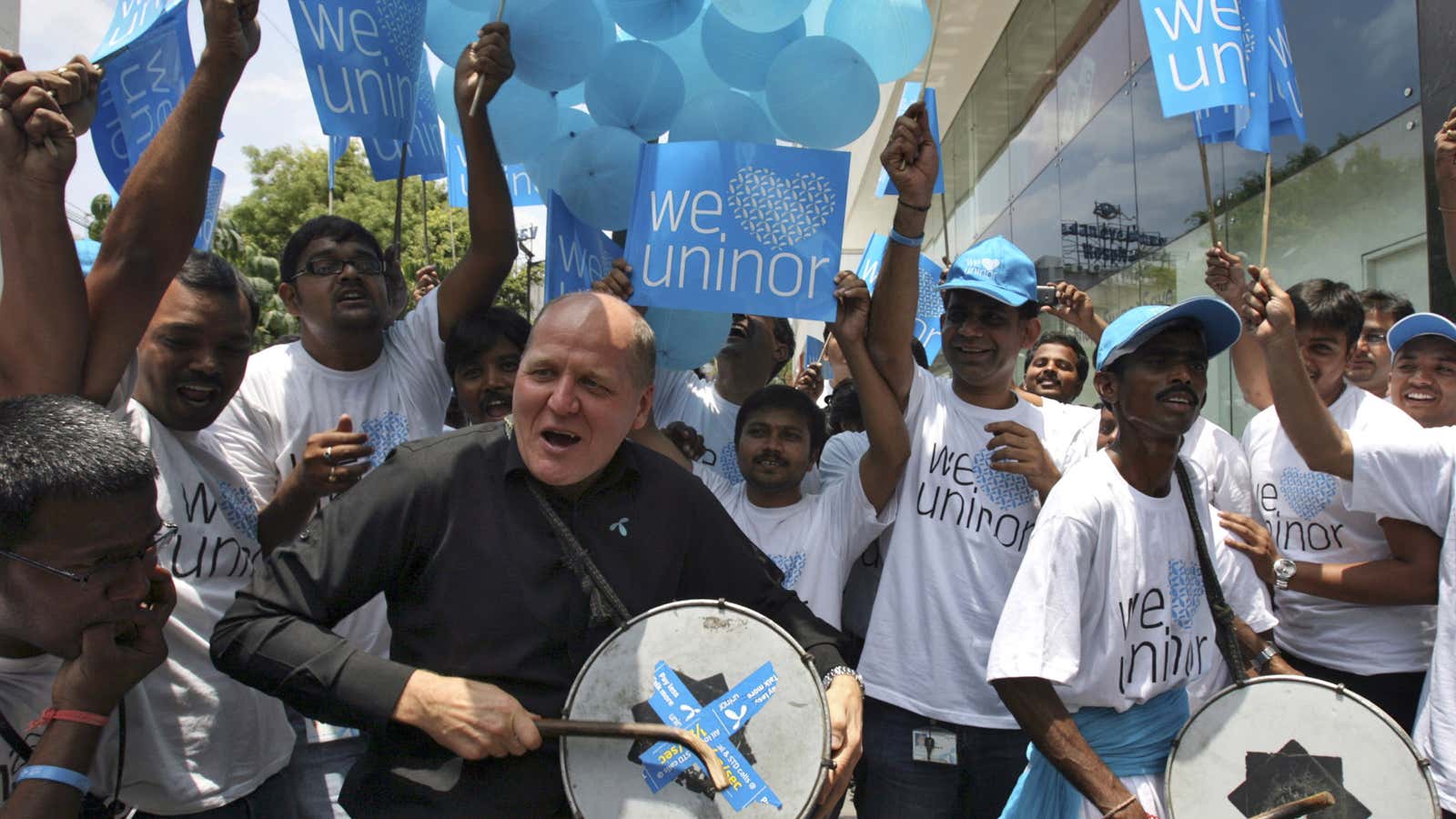Would you pay $2.50 a year for access to Facebook? What about WhatsApp? Those services don’t think so, which is why Facebook is free and WhatsApp costs nothing to download (though there is a subscription charge of $0.99 a year after that). Yet a mobile operator in India, where the average monthly revenue from mobile phone subscribers is a mere 105 rupees ($1.72), is betting that charging for access to social media may get subscribers to spend more.
Uninor, owned by the Norwegian telco Telenor, today announced that it would offer customers access to WhatsApp and Facebook for 1 rupee a day ($0.016), Rs 5 a week or Rs 15 a month. Subscribers also have the option of paying 50 paise, or half a rupee, for an hour’s access to Facebook. That’s a unit of money so negligible that Indians routinely refuse to accept 50-paise coins, and recyclers buy the coins by the kilo and melt them down. But it’s in the low rate that Uninor’s genius lies.
Smartphone penetration in India is abysmal, remaining under 10% despite a growing market. Fewer than half those smartphone owners have data plans, a proportion that the industry says is shrinking rather than growing. Only a quarter of Uninor’s 34 million subscribers pay for data. Since customers in India—the world’s second-largest mobile phone market and the one with the most room to grow—steadfastly refuse to buy data plans, operators have tried anything and everything to get them to spend more money. One tactic is to sell people content: For instance, Airtel sells downloads of music and videos for 1 rupee.
Uninor’s plan comes from the same place: If customers won’t pay for unfettered access to the internet, just get them to pay for the things they actually use, the thinking goes. And if those customers should wander off Facebook or WhatsApp thanks to an embedded link, they can pay for that separately. This idea, of Facebook as the gateway drug to the wider internet, drove Facebook’s attempts to convince operators to give away access to the social network for free. Initially, telcos bought the logic and signed on in droves, but they are now pushing back.
The small amounts Uninor charges for access to highly addictive social media can add up quickly. It is certainly a wise move on the part of Uninor. Expect more operators to follow suit.
